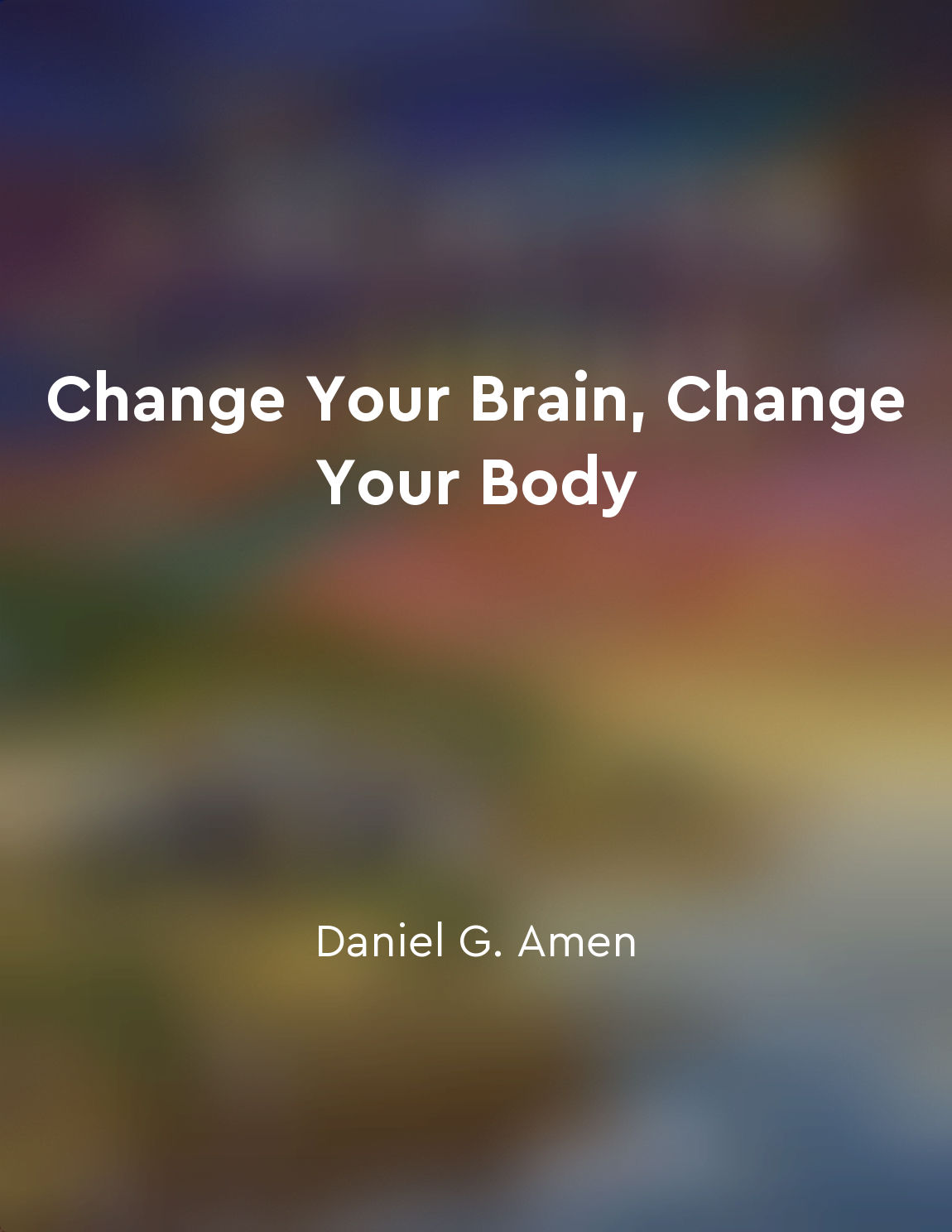The brain controls higher cognitive functions and emotions from "summary" of Anatomy & Physiology by Kevin T. Patton
The brain, the central organ of the nervous system, is responsible for controlling higher cognitive functions and emotions. This complex organ is divided into different regions, each with its own specific functions. The cerebral cortex, the outer layer of the brain, is involved in higher cognitive functions such as thinking, reasoning, and problem-solving. It is also responsible for processing sensory information and controlling voluntary movements. The limbic system, located deep within the brain, plays a crucial role in regulating emotions. This system includes structures like the amygdala and hippocampus, which are involved in processing emotions and forming memories. The amygdala, in particular, is known for its role in processing fear and other negative emotions. The hippocampus, on the other hand, is involved in forming new memories and retrieving old ones. The prefrontal cortex, located in the front part of the brain, is responsible for higher-order cognitive functions such as decision-making, planning, and social behavior. This region plays a critical role in regulating emotions and controlling impulsive behavior. Damage to the prefrontal cortex can lead to changes in personality and impaired decision-making abilities. The communication between different regions of the brain is essential for coordinating cognitive functions and emotional responses. This communication occurs through a network of neurons that transmit electrical signals and chemical messengers called neurotransmitters. Neurotransmitters like dopamine, serotonin, and norepinephrine play a crucial role in regulating mood and emotions.- The brain's ability to control higher cognitive functions and emotions is a complex process that involves the coordination of multiple regions and neurotransmitters. Understanding how these different parts of the brain work together can help us better understand human behavior and mental health.
Similar Posts
Experience shapes brain connections
Our brains are incredibly complex organs that are constantly changing and adapting based on our experiences. Every time we lear...

Reflecting on past experiences boosts learning
When we take the time to reflect on our past experiences, we are essentially engaging in a process that boosts our ability to l...
Positive selftalk can boost self-confidence and self-esteem
When you engage in positive self-talk, you are essentially feeding your brain with uplifting and empowering words. This practic...
The pursuit of perfection can be damaging
The quest for perfection is a common human aspiration. We seek flawlessness in our work, our relationships, and ourselves. We b...
Emotional regulation is key to mental health
Emotional regulation is fundamental to our mental well-being. It plays a crucial role in shaping how we experience the world ar...
Energy
Energy is a concept that encompasses the fundamental force behind all action and creation in the universe. It is the driving fo...

Changing your thoughts can improve your body
The way you think about yourself and your life can have a profound impact on your physical health. When you have negative thoug...
Attunement with others promotes connection and understanding
Attunement with others is a fundamental aspect of human connection that plays a crucial role in promoting understanding and fos...
Creating new experiences can stimulate brain growth
Imagine your brain as a garden filled with flowers. If you keep planting the same flowers year after year, the garden will beco...

Don't believe everything your brain tells you
Our brains are incredible machines, capable of processing vast amounts of information every second. However, this amazing abili...


